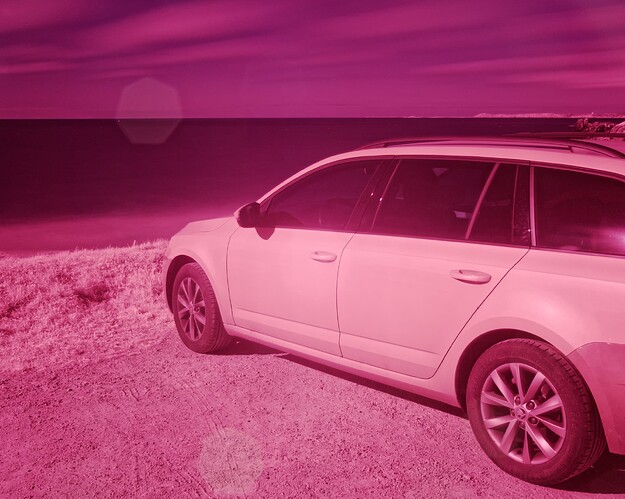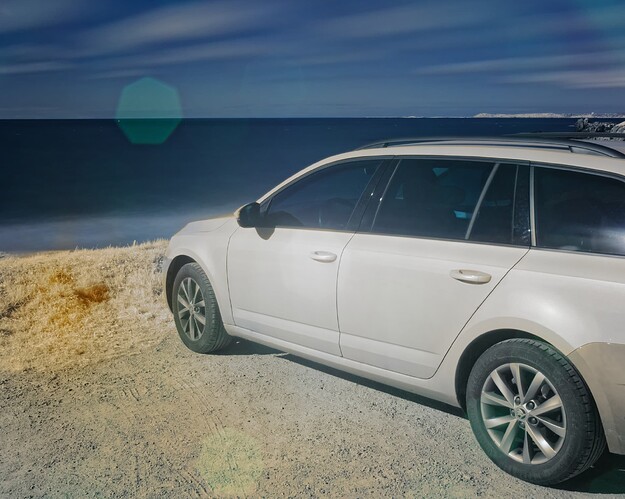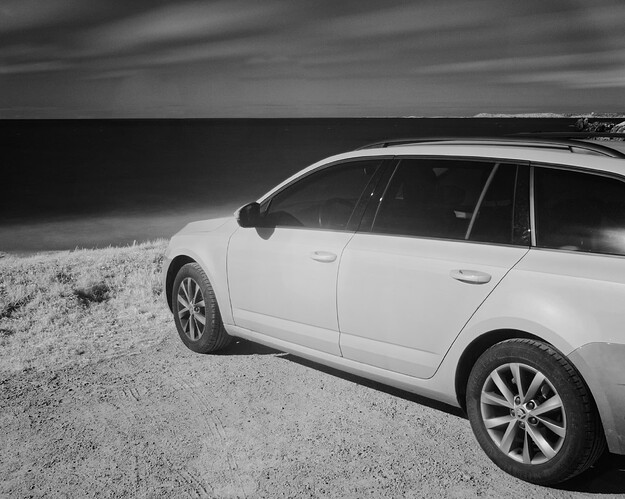I’ve had this “battle” for maybe the past ten or fifteen years. I used to have just one camera, that did, or was forced to do, just about everything. Nowadays, having acquired several very competent digital cameras (along with my old film cameras that I just look at, and hardly ever use), I’ve got several cameras from which to choose.
For better or worse, I have been following the advice that if I restrict myself to only one camera, I will learn how to get the most out of it, and I’ll always be familiar with the settings and controls.
At the same time, my understanding is that different cameras may be better at different things.
Using @Joanna as an example, I understand that the uses her Nikon D850 for almost everything, but has the Large Format camera for use when it matches the project better than the Nikon. Neither camera can replace the other all of the time.
For me, I’ve got multiple cameras that I keep because of their special abilities.
I’ve got a Leica M8.2 which I hardly ever use, but it is the only camera I own that is good for infrared photography, as it doesn’t have the anti-IR filter.
Then I’ve got my Nikon D3, which is good at a lot of things, buy my D780 does anything the D3 does, and does it better. For sports photography, I used to enjoy the D3, but it’s huge and heavy, and the 16-year-old technology can’t keep up with the newer and “better” Nikons. I’ve also got my Leica M10, which I use just for the sheer enjoyment of doing so. It doesn’t stand out, and for the most part people seem to think it’s a “toy” point-and-shoot. Unlike the Nikons though, everything is “manual”. By comparison, shooting with a Nikon is effortless, even in (M)anual mode. And finally, I’ve got my Fuji X100F, which is very small and inconspicuous, very quiet, but also creates high quality images. It also includes many “film simulations”, but I’ve always thought I could create them in PhotoLab. I guess I should include my Nikon Df, but the D780 does everything the Df can do, and does it better.
That’s just my collection - I suspect that many of you have newer and older cameras, and different cameras for different purposes. I’m wondering how each of you choose which camera to take with you, when you head out to take photos. What determines which camera you will take with you.
Long ago, when I got a newer camera, I sold or traded my old camera. That no longer works for me, and if I were ever to buy a “mirrorless” camera, it would be in addition to, not instead of, what I already have. I’ve never been very good at getting rid of things, cameras included, but KEH made it very easy for me to get some $$$ back, and unload things I neither used anymore, and which I never developed an attraction to.
Perhaps all of you are smarter than I am, and you just have and use one camera, and you don’t buy additional cameras, you replace cameras as the need arises. Oh, and one last thing - I get the feeling that people for the most part no longer buy cameras, they just use their smartphones…



